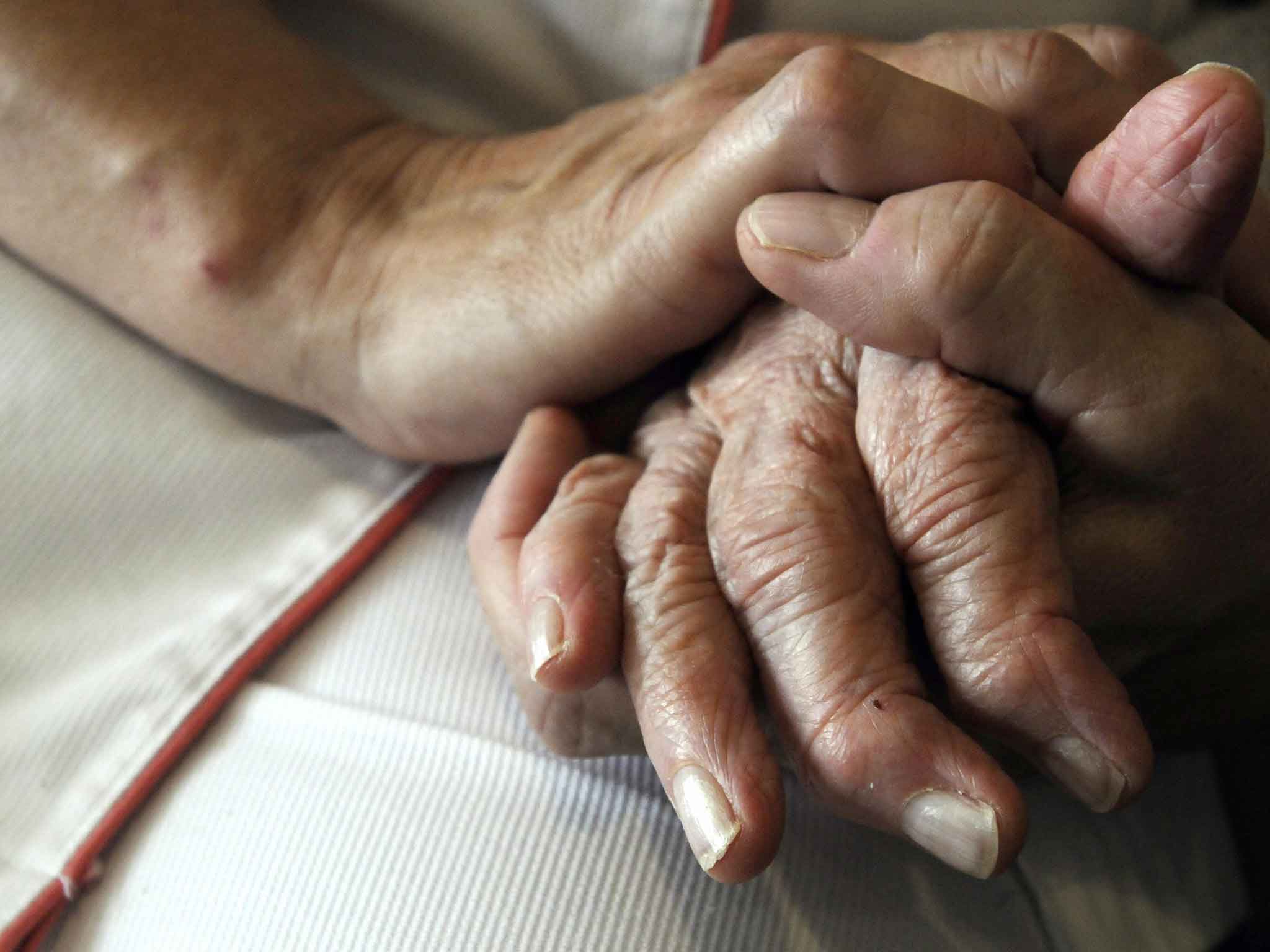Alzheimer's: A third of Britons born in 2015 will develop dementia, report says
The latest findings underscore the scale of the potential future crisis caused by an aging population

Your support helps us to tell the story
From reproductive rights to climate change to Big Tech, The Independent is on the ground when the story is developing. Whether it's investigating the financials of Elon Musk's pro-Trump PAC or producing our latest documentary, 'The A Word', which shines a light on the American women fighting for reproductive rights, we know how important it is to parse out the facts from the messaging.
At such a critical moment in US history, we need reporters on the ground. Your donation allows us to keep sending journalists to speak to both sides of the story.
The Independent is trusted by Americans across the entire political spectrum. And unlike many other quality news outlets, we choose not to lock Americans out of our reporting and analysis with paywalls. We believe quality journalism should be available to everyone, paid for by those who can afford it.
Your support makes all the difference.One in every three people born this year in the UK will eventually develop dementia, according to stark new research revealing the scale of what has been described as the country’s “greatest medical challenge”.
The report, commissioned by Alzheimer’s Research UK, estimates 32% of people born in the UK in 2015 will suffer from the debilitating mental illness at some stage in their lives.
Carried out by researchers at the independent Office of Health Economics (OHE), it sparked warning of “a looming national health crisis” from campaigners, warning health services would struggle to deal with the increasing patient burden.
Dr Matthew Norton, head of policy at Alzheimer’s Research UK, told the Independent: “The dementia related health services are creaking as it is, and we already have a crisis in social care. As rates increase it is only going to exert more pressure on an already troubled system.”
There are currently 850,000 people with dementia in the UK, with numbers projected to rise to over one million by 2025, and double again to two million by 2051.
The latest findings – which uses mathematical formulae to combine life expectancy estimates with projections for the frequency of dementia at different ages – underscore the scale of the potential future crisis caused by an aging population.
The report, which was released to coincide with World Alzheimer’s Day, said 37% of women and 27% of men born this year would eventually experience some form of dementia.
The eventual number could be even higher, as the report said its estimates are “potentially conservative” as they do not account for dementia cases which begin below the age of 60.
Dr Norton added that “the only way to make a big difference to numbers” was to substantially increase the funding for dementia research, with cancer research currently attracting millions more in funding.
Previous research from Alzheimer’s Research UK estimated that a treatment capable of delaying the onset of dementia by five years would reduce the number of dementia cases by a third.
There is currently no cure and only a handful of drugs available to treat the symptoms of Alzheimer’s, with many patients reliant on unpaid family carers or long-term hospital admissions.
But in 2012/13, the UK spent £73.8 million on dementia research opposed to £502.8 million on cancer research, leaving dementia research “desperately underfunded” according to the Alzhiemer’s Society.
“Dementia is our greatest medical challenge and if we are to beat it, we must invest in research to find new treatments and preventions,” Dr Norton said.
Dementia, which currently affects one in six people over the age of 80, is caused by brain diseases, most commonly Alzheimer’s, which result in the loss of brain cells and impair the brain’s ability to function properly.
Cathy Davidson, diagnosed at 57
Amanda Franks, from Swindon, is a campaigner for Alzheimer’s Research UK. Her mother Cathy Davidson was diagnosed with early-onset Alzheimer’s six years ago.
“My mum was diagnosed at 57 – but she was showing symptoms for a few years before that.
At first we thought she was depressed, and then it became obvious there was something not quite right.
She started struggling with all sorts of things – we used to get sandwiches with meat on the outside, and she used to try and lift the curtains rather than draw them because she had forgotten how they worked.
Nobody with dementia follows the same path, so you don’t know how it’s going to go. It was harder at the halfway stage, because it used to upset her and she’d tell us ‘I’m not stupid you know’ when we tried to help her with things.
She went into care two years ago – her condition progressed to hallucinating, she thought things that were happening on the news were happening in the house and she occasionally became violent. It became a round the clock job caring for her for my dad.
I found it very, very hard to see my 60-year old mum in jeans and a jumper wandering around in an elderly people’s home. It’s hard for people who are hit by dementia so young, because their bodies are still active.”
Join our commenting forum
Join thought-provoking conversations, follow other Independent readers and see their replies
Comments